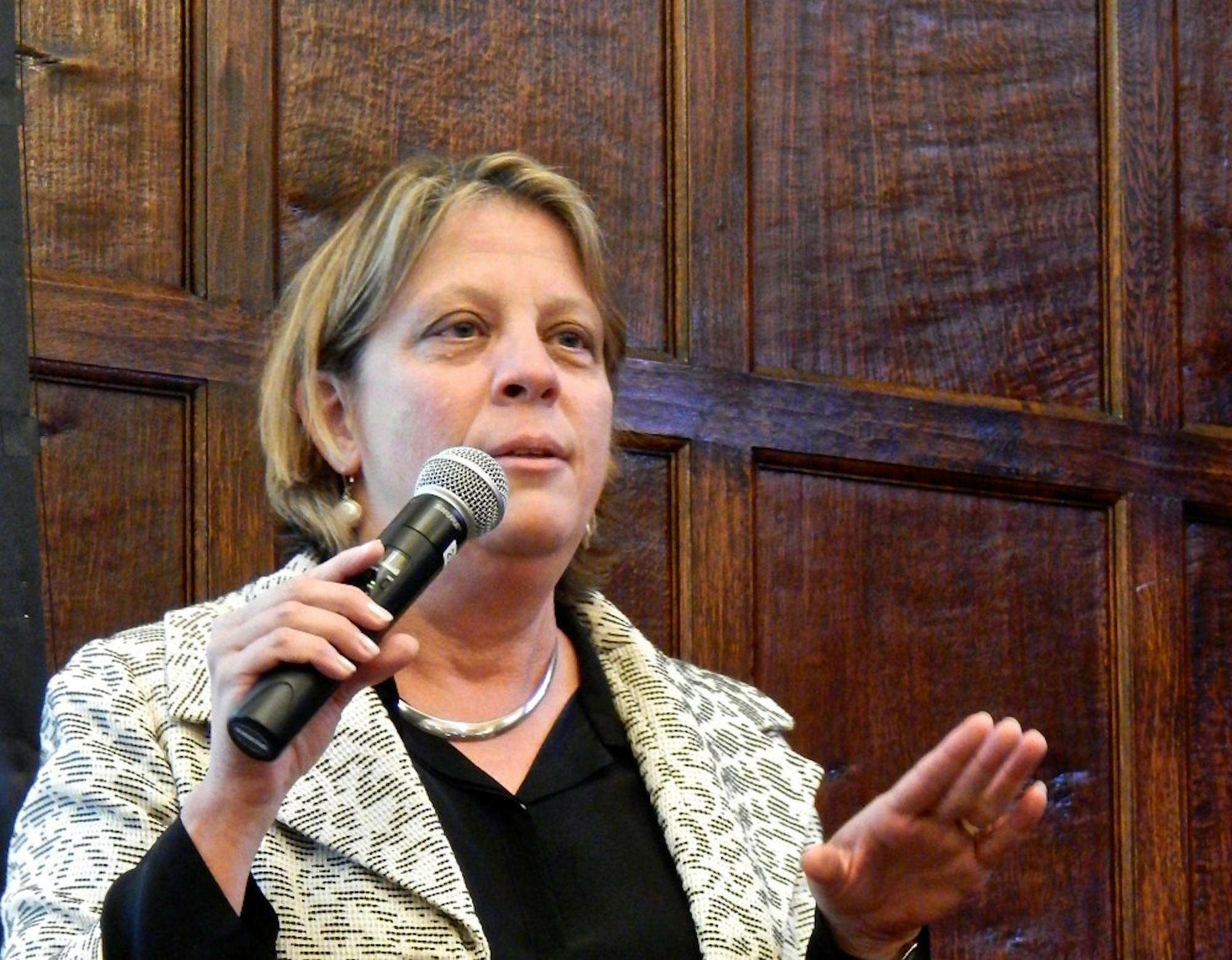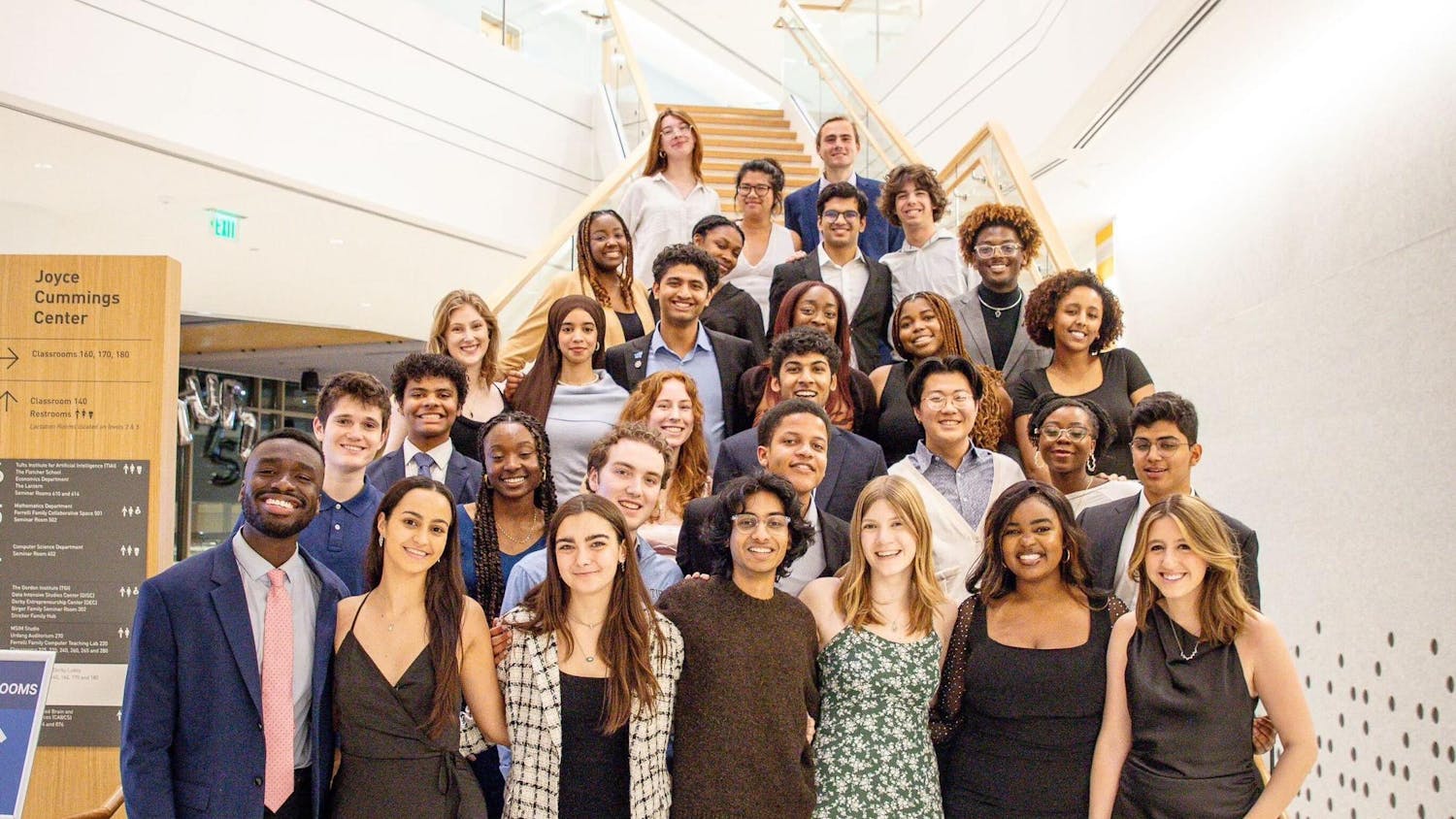Tufts celebrated this year's Constitution Day on Friday afternoon with a lecture by Executive Director of the American Civil Liberties Union (ACLU) of Massachusetts Carol Rose, who spoke about the lasting significance of the Constitution in American society. The talk, titled "Sex, Drugs, and Rock & Roll: A Constitutional Update," took place in the Crane Room and was co-sponsored by the Department of Political Science, the School of Arts and Sciences and the Office of the President.
Interim Dean of the School of Arts and Sciences James Glaser introduced Rose as a highly accomplished former classmate, citing her career as a reporter working across the world prior to receiving her law degree from Harvard Law School and then becoming director of the ACLU of Massachusetts. Glaser and Rose were undergraduates at Stanford University together, both graduating in 1983.
Rose began her presentation with a reference to the origins of the Constitution.
“Who were the people who signed the Constitution?” she asked. “They were old white men. They were property owners; they were slave owners.”
She then sought to contextualize the Constitution within American society today.
“Here we have the U.S. Constitution, which is a really old document, and the people who wrote it could never have imagined the world we live in today,” Rose said. “So why is the Constitution still relevant today? Why should we bother to celebrate Constitution Day or to talk about the ACLU?”
Rose discussed the continuing relevance of the Constitution and constitutional law through sex, drugs and rock and roll, dividing sex into two categories: sex as sex and sex as gender.
She cited the first women’s rights convention in America, the Seneca Falls Convention in 1848, as the birthplace of the first women’s rights agenda in the United States and explained the role that the Constitution played in the conception of the ideals discussed at Seneca Falls.
“Where did the women at Seneca Falls get those ideas? From the Constitution," she said. "Those were the values and ideals set forth in the Constitution by people who, when they wrote them down, certainly didn’t think they would be applied to women."
Rose noted that although significant progress has been achieved, society still has much to accomplish before equal rights are achieved for women.
“We still haven’t achieved full equality when it comes to women’s rights and sex and gender,” she said.
She cited the 2014 Burwell v. Hobby Lobby case, which allowed owners of a closely held for-profit corporation to deny coverage for their employees' contraception if they are morally opposed to it, as an example of the interplay between religion and constitutionality in this country.
“It’s a question of the role of religion and our rules about sex and who gets to decide who gets to have sex,” she said.
Rose also discussed policing racial disparities and what she sees as the importance of decriminalizing marijuana to decrease arrests.
“Black people smoke a lot less pot than white people, but they get arrested for it at an extraordinarily higher rate,” she said. “One of the good things the ACLU has done is to help to decriminalize marijuana. Look at that, a lot fewer arrests. But the racial disparities haven’t gone down, even in Massachusetts. These policing racial disparities continue throughout our country.”
Finally, Rose briefly examined the relationship between pop culture and the Constitution. She referenced the Federal Bureau of Investigation (FBI) file on the song "Louie Louie," which was created due to rumors that the song contained inappropriate language if played slowly.
“The FBI conducted a 30-month investigation, giving it an unkillable reputation as a dirty song,” she said.
Rose then showed a news video about the National Security Agency allegedly spying through Angry Birds and other smartphone applications, demonstrating that distrust toward aspects of pop culture continues to occur in this generation.
She concluded her presentation with a reminder of the lasting significance of the Constitution.
“What did the people who wrote the Constitution intend? It doesn’t matter what the people who wrote the Constitution meant; what matters is the power of the words," she said. "The power isn’t in the writing -- it’s in the listening. Slaves heard it and applied it to themselves and demanded freedom. Women heard it and applied it to themselves and are still demanding equality. Gay people heard it; transgender people heard it."
Rose concluded that the Constitution remains relevant to American society today.
“The power of the Constitution is in the hearing it and applying it to ourselves," she said. "It’s still a living and breathing and relevant document that the ACLU and hopefully all of you will be a part of defending."






